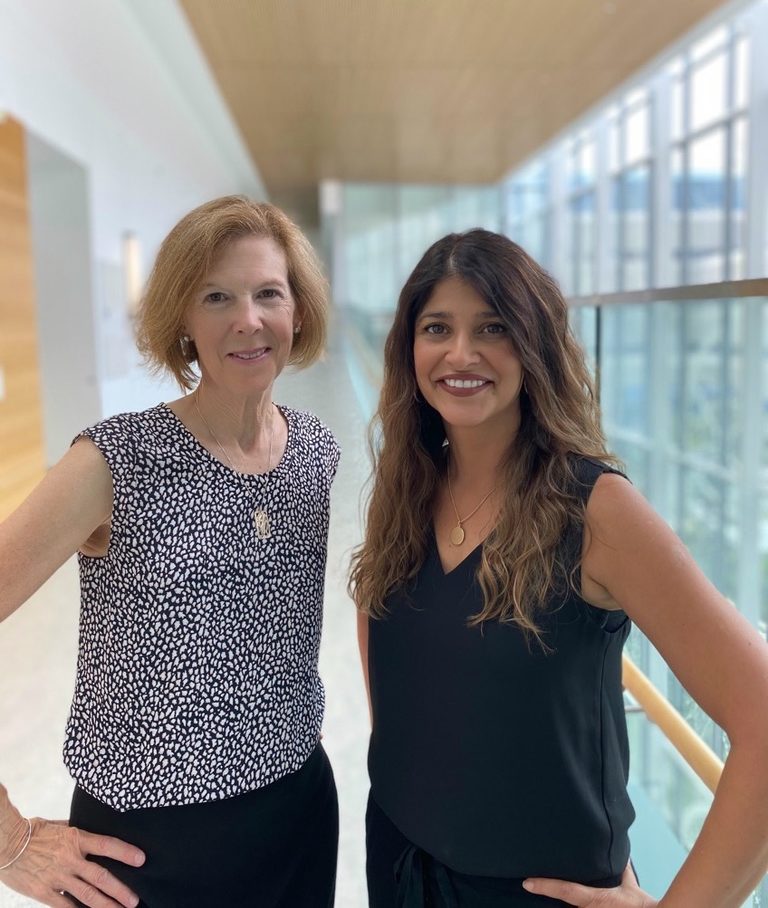Director’s Message
 In 2024, we proudly celebrate ten years of excellence in research, education and clinical care since the official opening of the Djavad Mowafaghian Centre for Brain Health. As we reflect on a decade of success, we are amazed at the profound impact the Centre has had on the advancement of brain health throughout BC, across the country and beyond.
In 2024, we proudly celebrate ten years of excellence in research, education and clinical care since the official opening of the Djavad Mowafaghian Centre for Brain Health. As we reflect on a decade of success, we are amazed at the profound impact the Centre has had on the advancement of brain health throughout BC, across the country and beyond.
From its inception, one of the key goals was to unite research and clinical care. Over the past decade, the Centre has become the heart of neuroscience research and patient care in BC. It is now comprised of over 150 foundational and clinical scientists, seven clinics and a thriving Brain Wellness Program which provides lifestyle and exercise programs to over 2,000 people across the province.
The Centre is truly a hub where clinical and basic science coalesce, fostering creativity and synergy. Our five integrated research programs (IRPs) have brought together clinicians and discovery scientists, creating opportunities for collaboration, training and team science. This has been further strengthened by initiatives such as our Kickstart Grants, which have sparked new interdisciplinary research projects.
In the past year alone, DMCBH members have secured over $70 million in research funding and produced over 1,000 published papers, including 163 collaborative studies within UBC and 915 in collaboration with national and international partners. Our clinics also conducted over 20,000 patient visits and established new guidelines for treatments in mental health and neurological disorders.
The Centre’s core facilities have also been integral in accelerating research, providing scientists, clinicians and trainees with access to state-of-the-art equipment and technologies. The Charles E. Fipke Integrated Neuroimaging Suite (FINS) recently underwent significant equipment upgrades to the MRI and PET/MRI scanners, allowing for a new realm of research questions with a broader multi-modality approach. The NeuroImaging and NeuroComputation Core (NINC) provides advanced microscopy and imaging systems, with continued support for big data analysis and a variety of open science initiatives. In addition, the Borgland Family Brain Tissue and DNA Bank remains a key resource for the collection, storage and distribution of biospecimens for clinical studies, while the Preclinical Discovery Centre provides ongoing animal care facilities.
The Centre has also fostered a supportive learning environment, creating opportunities for thousands of trainees over the past decade. Together, the Undergraduate and Graduate Programs in Neuroscience provide students with a comprehensive education through enriching research experiences in both laboratory and clinical settings.
Looking ahead, one of our future goals is to create a new School of Neuroscience, which would allow us to attract the best and brightest students and provide a world-class, multidisciplinary educational experience for the next generation of scientists. This new school would be only the second School of Neuroscience in Canada and would propel UBC to become a global leader in the field of neuroscience.
We are immensely proud of the Centre’s accomplishments over the past ten years. The Centre has not only established itself as a trailblazer in neuroscience research but has also made significant contributions to brain health knowledge and patient care. We are excited for the future as we begin our new term as co-directors of the Centre and look forward to another decade of promoting brain health through innovative research, training and care in BC and across Canada.
Lynn Raymond, MD, PhD, FRCPC
Co-Director, Djavad Mowafaghian Centre for Brain Health
Shernaz Bamji, PhD
Co-Director, Djavad Mowafaghian Centre for Brain Health